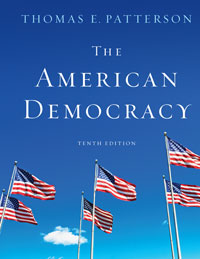1 A) wrote Das Kapital . B) wrote The Wealth of Nations . C) advocated a worker-controlled economy. D) advocated laissez-faire capitalism. E) both wrote The Wealth of Nations and advocated laissez-faire capitalism. 2 A) meat-packing B) railroad C) airline D) dairy E) steel 3 A) Earth in the Balance B) The Silent Spring C) The government D) The Environmental Protection Agency E) None of these answers is correct. 4 A) China B) Germany C) Cuba D) The United States E) Russia 5 A) George W. Bush B) Bill Clinton C) George H. W. Bush D) John McCain E) Barack Obama 6 A) The Civil War B) Industrialization C) Immigration D) The Great Depression E) The 1970s energy crisis 7 A) interest rates. B) inflation. C) taxes. D) government spending. E) both taxes and government spending. 8 A) that the Fed should be held more accountable by giving Congress control over the appointment process of the Federal Reserve Board. B) that corporate tax cuts should be implemented during a downturn in order to stimulate business production. C) that tax cuts are most desirable during a recession in order to fuel demand among top earners. D) that governments should spend during recessions in order to make up for the loss in private spending. E) that supply and demand are best controlled by manipulating the money supply. 9 A) John Maynard Keynes B) Franklin D. Roosevelt C) Ronald Reagan D) George W. Bush E) Both John Maynard Keynes and Franklin D. Roosevelt 10 A) the total amount of money a bank may have invested in private or government securities at any one time. B) the amount of money each bank must keep invested in government securities at any one time. C) the amount of money each bank must pay to the federal government in taxes each year. D) the proportion of a member bank's total deposits that the bank can loan out at any one time. E) the proportion of a member bank's total deposits that the bank must keep on hand. 11 A) Franklin Roosevelt B) Johnson C) Reagan D) Carter E) Kennedy 12 A) 1889 B) 1965 C) 1948 D) 1913 E) 1841 13 A) By the late nineteenth century, the large trusts that had dominated many areas of the economy had all been broken up. B) Railroad companies in the late nineteenth century competed so intensely with each other that they dropped their shipping rates too low to remain profitable. C) Congress created the Interstate Commerce Commission in 1887 and charged it with responsibility for ensuring that farmers did not overcharge when selling their crops across state lines. D) Both are true: By the late nineteenth century, the large trusts had all been broken up; and competition led railroads to drop their rates too low to remain profitable. E) None of these answers is correct. 14 A) Acadia. B) the Everglades. C) Yellowstone. D) Mount Rushmore. E) the Grand Canyon. 15 A) The Endangered Species Act was passed. B) The Clean Air Act was passed. C) Rachel Carson's The Silent Spring was published. D) The Water Quality Act was passed E) The Environmental Protection Agency was created. 16 A) more than half B) more than a third C) more than a fourth D) about a tenth E) about a fifth 17 A) $1 trillion. B) $100 billion. C) $13 trillion. D) $17 trillion. E) $33 trillion. 18 A) a five-year, $300 billion farm bill for assistance to farmers B) a massive, $200 billion cut in farm subsidies C) a 10% rise in tariffs on imports of foreign agricultural goods D) a series of price controls to keep the cost of basic agricultural products from rising too high E) a ten-year, $500 billion series of subsidies to American farmers 19 A) cannot apply its environmental standards to foreign companies producing products in the U.S. B) cannot apply its environmental production standards to foreign companies selling products in the U.S. C) can only apply Superfund provisions to sites contaminated through actions of the U.S. government. D) can only take into account public health when establishing air quality standards. E) can take into account public health and economic factors when establishing air quality standards. 20 A) is generally combated by raising government spending and cutting taxes. B) reached a low, during the twentieth century, in the 1970s. C) was a major problem before the creation of the Fed, but was reduced dramatically by the introduction of monetary policy as an economic tool. D) turned into deflation as a result of the Vietnam War. E) was a minor problem before the late 1960s, rising by less than 4 percent annually.





